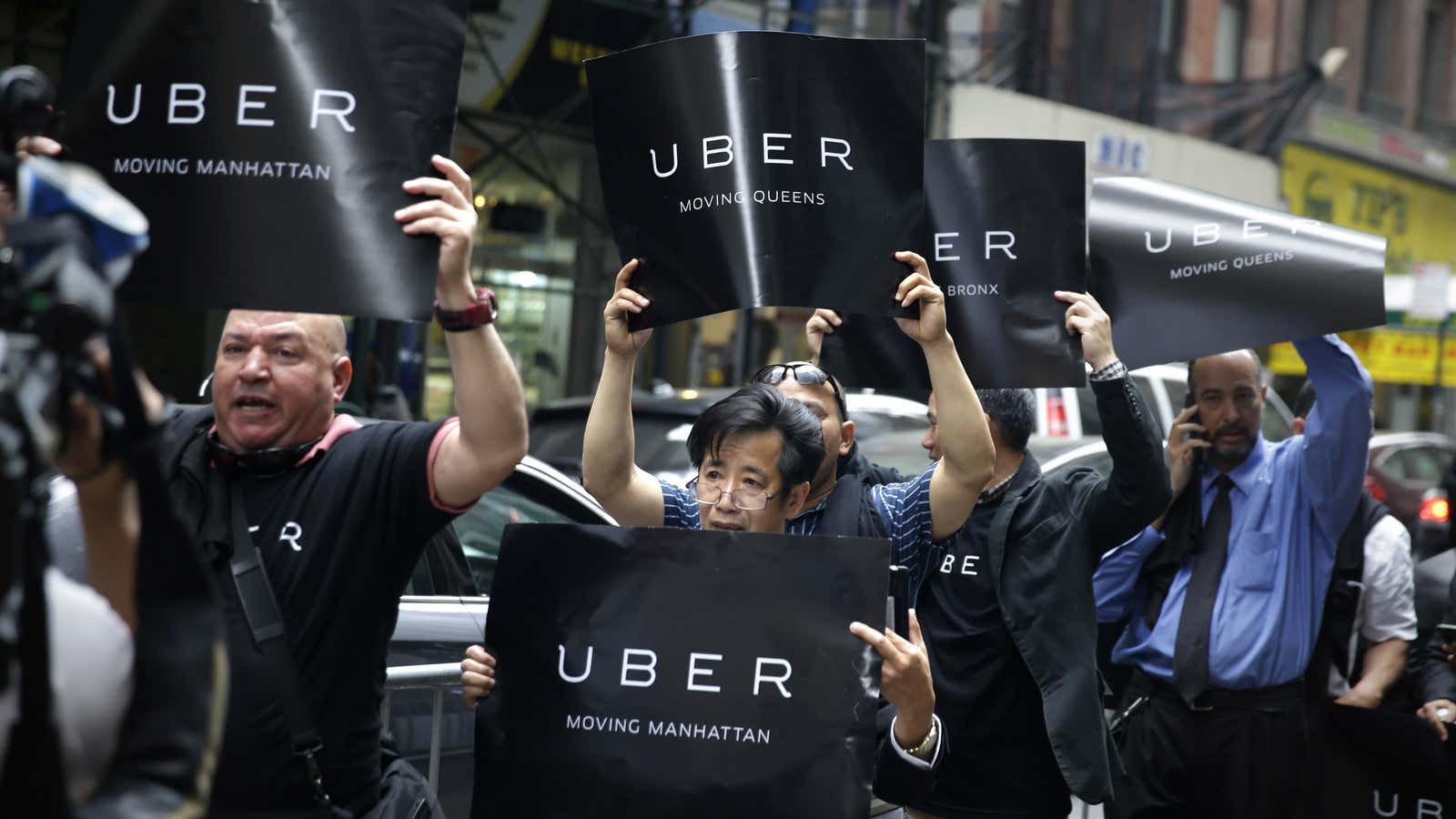Uber may have started as a ride-sharing app but it’s trying to morph into a full-blown transportation company, applying its knowhow of moving millions of people around to delivering groceries, clothes, and other packages.
This fall, Uber is planning to announce a partnership with dozens of popular retailers and fashion brands to speedily deliver their goods, reports Recode’s Jason Del Ray.
Two people familiar with the rollout say it will start in New York City and include among its partnerships some flashy, luxury brands whose flagship stores are usually found on or around Fifth Avenue in Manhattan.
In an effort to increase its number of partners, Uber has also been in talks with software companies like Bigcommerce and Shopify, which help small businesses set up online storefronts.
The move could be huge for retailers who desperately need help in the delivery department in order to compete with Amazon, the e-commerce behemoth that has started delivering packages on Sundays and has cut delivery times down to one-hour in certain cities. Delivery by drone may not be far off.
By contrast, merchandise from e-commerce rival Zulilly can take two to three weeks to arrive (paywall), while packages delivered with standard shipping from Walmart can take up to seven business days to arrive at a customer’s doorstop in the US.
As more people shift their shopping to the internet, customers are getting increasingly demanding in terms of how quickly they want their goods delivered. And as more consumers shop online for fresh groceries from food delivery startups like Instacart and Deliv, their need for speed will increase even more.
Uber has been testing out retail delivery for a couple of years, delivering condoms and cold medicine, Christmas trees for Home Depot, and luxury goods for flash sales site Gilt Groupe.
But Uber’s delivery efforts have failed to take off as rapidly as its car service, and in some cases, the partnerships have fizzled.
The “arrangement fell short of expectations, partly because Uber was unable to insure high-priced items sold through Gilt’s online store,” a Gilt spokeswoman told The Wall Street Journal in June. The Journal also reported that Uber lost out on lucrative contracts to deliver goods for Apple and Starbucks, which chose to parter with rival courier service Postmates.
Still, if major retailers like Target or Macy’s got behind the service, it could just be what both Uber and the store chains need to gain traction with customers.




